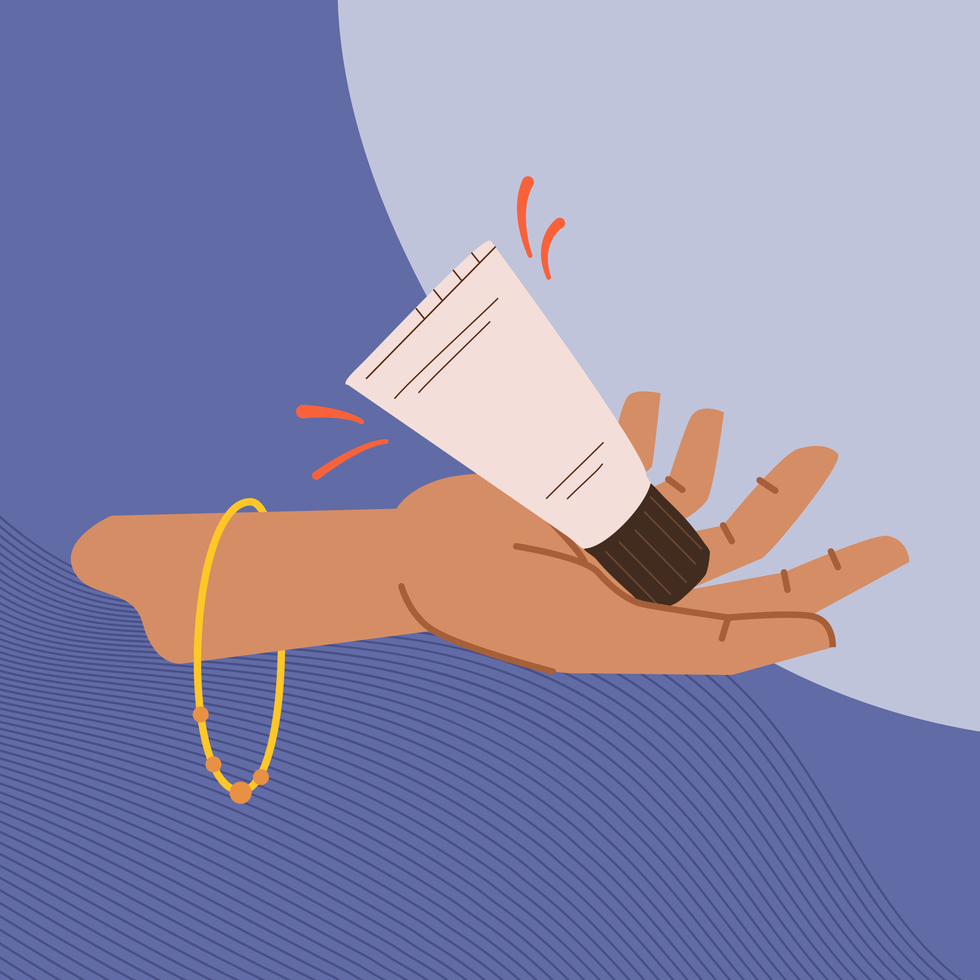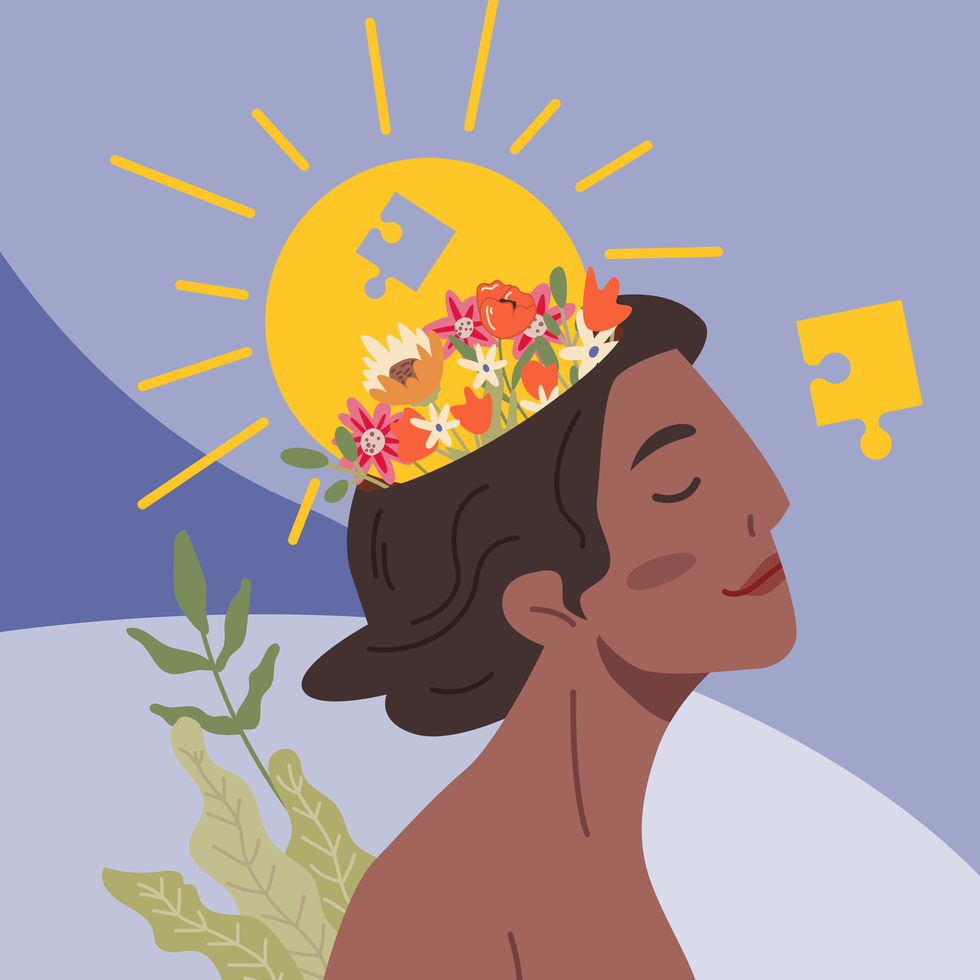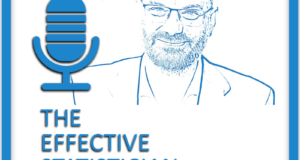This is a feature about the hormone therapy landscape in the UK, as told through our colleagues at Women’s Health – UK.
Recently, the subject of using testosterone as another way of managing symptoms, such as loss as sex drive, has come back into the news, as actress Kate Winslet has sung the hormone’s praises.
Here, Women’s Health speaks to the women using the treatment, as well as the experts specializing in understanding the impact of such medications, to grapple with the promise – and the pitfalls – of the therapy.
Gail Robertson’s eyes welled up as the mocking laughter fed its way down the phone line. The mother-of-one, then 41, had asked her doctor for help as she struggled with the hormonal fallout of a surgical menopause, after a total hysterectomy he’d performed on her months earlier.
‘It eased my endometriosis pain and reduced my hereditary cancer risk, but I was left feeling alien in my own body,’ the now-47-year-old from Kent recalls. ‘It disrupted my sleep and triggered hot flushes and anxiety – which oestrogen HRT patches were soon able to ease – but my sex drive fell off a cliff.’
Four successive male NHS doctors dismissed her complaints about low libido – telling her to ‘persevere’, ‘get some lube’ and ‘exercise more’. Her tearful phone consultation culminated in her being chastised by her consultant gynaecologist for ‘telling me how to do my job’ when, after extensive online research, she requested what appeared to be a simple solution: testosterone.
The hormone hasn’t historically been considered a cornerstone of female health, given that women have around a tenth the levels that men do. But in recent years, it’s increasingly been discussed on Instagram feeds and in GP surgeries in the same breath as menopause.
The idea that testosterone could be the missing piece of the hormone therapy (HRT) jigsaw puzzle, alongside the female sex hormones estrogen and progesterone, was first sparked by a change in the National Institute for Health and Care Excellence (NICE) guidelines in 2015, which recommended it for low libido. But in recent years, interest in the hormone has soared.
If it began with Australia licensing the world’s first testosterone product for women in 2020, the celebrity menopause movement threw some star power behind it. Testosterone had glowing mentions in the 2021 and 2022 documentaries fronted by Davina McCall, who says it’s left her feeling better than she has done in years. Now, the TV personality and beauty entrepreneur Trinny Woodall has became the latest celebrity to endorse the hormone, telling The Times earlier this month that she has a ‘shot in the arse of Testosterone’ three times a year.
‘There is definitely increased awareness of the availability of testosterone,’ says Dr Sophie Shotter. The aesthetic doctor has been prescribing testosterone for as long as she’s been prescribing HRT at her clinic, Illuminate Skin Clinic, in Kent. She believes the work within the menopause space being done by Davina and others is contributing to the uptick in interest she’s seeing at the moment.
But while a growing number of women are waxing lyrical about testosterone’s restorative powers for sex drive, energy and mental clarity, a debate is unfolding over whether it really is a silver bullet for symptoms – and if its vanishingly-slim NHS availability is smoothing the way for two-tier system. So what does this mean for your average menopausal woman?
What is testosterone?
You’d be forgiven for feeling confused about what testosterone has to do with menopause, but the ‘male’ hormone is actually vital for women. ‘It’s produced by our ovaries and adrenal glands, and is important for both reproductive health and general physiology,’ says Dr Ru Ahweyevu, a former NHS GP now working with the Illuminate Skin Clinic. ‘Research has confirmed that it’s key to female sex drive, and there’s early indications it may also benefit brain function, mood and energy, as well as bone and muscle mass.’
But while it’s the hormone on menopausal women’s lips, it isn’t connected to this life stage per se. ‘We have high levels of testosterone in our 20s, but after the age of 30, levels naturally decline by approximately 1% per year – unless you have a surgically-induced menopause, during which levels suddenly drop,’ explains Dr Sarah Ball, a GP and menopause doctor at the clinic Health In Menopause. ‘This is unlike oestrogen and progesterone, which plummet [during] menopause.’
As you’ll almost certainly be aware, HRT is now as staple a part of a menopausal woman’s daily routines as popping supplements or applying skincare. It’s predominantly been used to top-up depleted levels of oestrogen and progesterone to ease symptoms like hot flushes, disrupted sleep, brain fog and anxiety. But testosterone is increasingly being thrown into the mix.
‘Currently, on the NHS, doctors can prescribe testosterone specifically for low libido if other avenues have been exhausted – like regular HRT and relationship issues,’ explains Dr Ball. Between November 2015 – when the NICE guidelines approved it – and November 2022, NHS prescriptions for testosterone for women in England increased by around 10-fold, according to a freedom of information request submitted by The Pharmaceutical Journal; they also identified notable spikes following each of McCall’s menopause documentaries.
What symptoms can testosterone help with?
But as it stands, NHS doctors can only prescribe testosterone for low libido. ‘At the moment, the only robust evidence – meaning studies that were well designed, with enough participants and ran for long enough – is for sexual health,’ says Dr Ball. The Royal College of Obstetricians and Gynaecologists was part of a group of organisations that stated in the journal Climacteric in 2019 that there was currently insufficient evidence that it could help with symptoms like cognitive performance and musculoskeletal effects.
And yet, many doctors believe that further research will reveal that testosterone wields benefits beyond libido. ‘There are so many other potential – biologically plausible – things that testosterone should make a difference to,’ notes Dr Ball. ‘Patients at our clinic have described it as “life-changing”, reporting raised energy levels, eased anxiety, improved muscle strength and better cognitive function.’
Often, she reveals, these patients feel angry that they were given HRT and antidepressants when testosterone was there all along. Dr Louise Newson – a GP specialising in the menopause who’s witnessed the benefits of testosterone in her patients – argues the lack of evidence is because women’s health hasn’t historically been a research priority. For Dr Newson, it seems ‘barbaric’ that women in 2023 women aren’t ‘allowed’ to have their own hormone.
This was the case for Adele Johnston. The Fife-based mother-of-two, 39, became aware of her low testosterone levels after tests confirmed she’d gone into early menopause in her 30s. She was picking up her twin daughters from school when an NHS doctor told her over the phone that while she could prescribe standard HRT, she didn’t feel comfortable prescribing her testosterone; the news left her in tears. ‘I had debilitating anxiety and low energy that severely impacted my career in finance,’ she recalls. ‘On top of that, my husband thought I was falling out of love with him, in part due to my low libido.’
She’s not the only one; a strained relationship is something many menopausal women experience, with one survey published last year finding that seven in 10 felt that their menopause symptoms had impacted their marriage. Adele went on to access testosterone privately, clocking a vast improvement in how she felt within six weeks. She’s since founded a global coaching business, The Menopause Coach, supporting other women through menopause.
Why is testosterone so hard to access?
The number of women accessing testosterone on the NHS is a complex picture. On the surface, the data indicates a rising number of NHS prescriptions for female patients struggling with sex drive. But the experts WH spoke to for this piece told us few women are able to access it this way.
‘Many NHS doctors don’t feel confident prescribing it for libido, often due to lack of training and the pressure of 10-minute appointments,’ says Dr Ahweyevu. ‘They are also very reluctant to do so for symptoms that aren’t in the NICE guidelines on an “unlicensed” basis [where a medicine hasn’t been licensed by the Medicines and Healthcare Products Regulatory Agency, MHRA] or “off label” basis [where a medicine is used in a way that’s different to that described on the product license].’ As such, the women who are hearing about testosterone via word of mouth or on social media are increasingly turning to private doctors.
Gail is among them. After that consultation, she contacted Dr Shotter’s clinic, Illuminate Skin Clinic. After confirming her low testosterone levels, they prescribed her a cream that she rubs on her wrists. ‘It took around eight months to settle, but my libido is now back to normal,’ she tells WH. ‘I have an increased sex drive, no more vaginal dryness and I can reach orgasm.’ She’s convinced the benefits also extended to her returning to a normal weight, as well as better mental wellbeing and the energy she needs for her dog grooming and doggy daycare business.
But these benefits come at a cost, quite literally. Gail estimates that she spends £1,200 a year on consultations, blood tests and the medication itself. ‘My husband and I decided that we would find the money because I couldn’t go on living like this,’ she says. ‘We stopped going for as many dinners and altered our food shop. We’re fortunate that with those tweaks we can afford it, but if it was just me and my son, I couldn’t. It makes me furious.’
Doctors acknowledge that there is a widening gap when it comes to menopause care in the UK over who can and can’t pay. ‘Testosterone is viewed as a lifestyle choice, alongside Botox or colonic irrigation,’ notes Dr Ball. ‘Feeling well is often presented as a luxury, not a necessity for women.’ Gail’s anger is compounded by the memory of a male friend who was able to access an NHS prescription for testosterone for erectile dysfunction after just one appointment.
Throwing weight behind suggestions of medical sexism is that there is still no licensed testosterone product specifically for women approved in the UK – with just one testosterone cream imported from Australia under a special MHRA license.
In many cases, women are prescribed a male testosterone product, which can be more than 50 times the recommended female dose. ‘They are often told to use a “pea-sized” blob, which is unscientific, and risks side effects like facial hair and acne,’ warns Dr Fiona MacRae, a women’s health and hormone specialist at The Marion Gluck Clinic. In rare cases, too much testosterone can cause potentially irreversible male pattern baldness, deepening voice and clitoral enlargement.
Is testosterone being over-hyped?
Access issues aside, some experts are pushing back on the idea of testosterone as a silver bullet. Dr Olivia Hum works as a GP in both NHS and private practice and is one of only 200 British Menopause Society (BMS) qualified menopause specialists in the country. ‘I’m not anti-testosterone and I do prescribe it, with some of my patients feeling fantastic, but I feel it is being over-hyped,’ she explains. ‘Increased menopause awareness has been amazing, but there are now vested interests from those making a lot of money from it – people taking one or two facts and running with them – and the difficulty of getting your hands on it has made it all the more alluring.’
Some of the misconceptions Dr Hum points to include the idea that GPs can’t be bothered to learn more about testosterone, and that it will automatically make you feel amazing. Similarly, a BMS statement in March warned that presenting testosterone as the ‘third component of HRT’ was misinformation and created ‘unrealistic expectations’.
Nigel Denby, a registered dietitian specialising in the menopause, notes that women of menopausal age – often caring for both children and parents while juggling senior roles at work – are particularly vulnerable to its presentation as a silver bullet for symptoms. ‘Testosterone is being wrongly presented as the secret, missing link and that if you take it everything will be alright,’ he says, noting that we often forget the role that stress, diet and sleep play in hormone-management.
For Dr Hum, before considering testosterone, we should be focusing on getting women on the right dose of HRT – an issue she describes as ‘the huge social and cultural inequality’ that persists in the UK, with women in deprived areas and certain ethnic groups still struggling to access it at all.
Should menopausal women be taking testosterone?
All of which leaves menopausal women in rather unsettled waters. Experts tell WH that more studies into testosterone’s wider benefits are key – and things are looking up, with both NICE and the BMS currently planning research.
But until there’s fresh evidence, NICE won’t be inclined to change its recommendations – which, in turn, affects NHS menopause care. In a statement to WH, NICE said its guidelines are based on the ‘best available evidence of their clinical and cost effectiveness’, adding that in their latest ‘surveillance and scoping process’ they did not identify any ‘substantive’ new evidence.
As we watch this space, several doctors told us that they would like to see GPs receive better menopause training; for Dr Shotter, this looks like improving the existing education for GPs around testosterone and safe prescribing for women. Many doctor also feel that care could be improved by referring more women to specialist NHS menopause clinics, where waitlists are currently up to two years long.
‘Testosterone might not be the right treatment option for every woman, but women are, at present, being denied the basic opportunity to discuss it with a healthcare professional,’ says Dr Newson. She also believes it is ‘scandalous’ that there aren’t products available specifically for women. Meanwhile, the BMS blames the ‘reluctance’ of the pharmaceutical industry to finance the further clinical studies necessarily for a female testosterone product to be licensed.
But all this is besides the point, argues Dr Ahweyevu. ‘A lot of women are suffering in silence with low libido at this stage of life, and we know how important sexual health is to wider wellbeing,’ she says. ‘Even if research ultimately shows there are no other benefits [to testosterone], the fact it has been shown to help with libido is, for me, reason enough for it to be more widely available to women in the UK – with doctors needing to feel equipped to help women in the same way as a man walking through the door with the same complaint.’ As Gail puts it: ‘Do I not deserve pleasure too?’
If you’re struggling with perimenopausal or menopausal symptoms, see a GP, nurse or pharmacist for advice. There are also menopause specialists who have experience in supporting anyone going through perimenopause and menopause. To find your nearest menopause specialist, visit thebms.org.uk/find-a-menopause-specialist/

Lauren is a lifestyle journalist with digital and magazine experience. Find her covering all aspects of wellness – from fitness, nutrition and mental health, to beauty and travel. Morning HIIT, a lunchtime oat latte and evenings ensconced in a hyaluronic acid-infused sheet mask are her own personal feel-good pillars.









